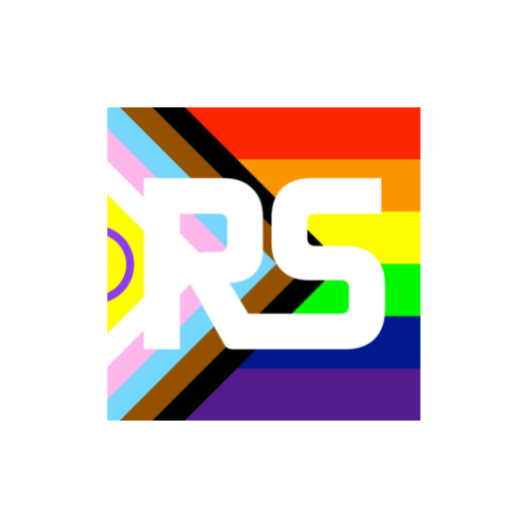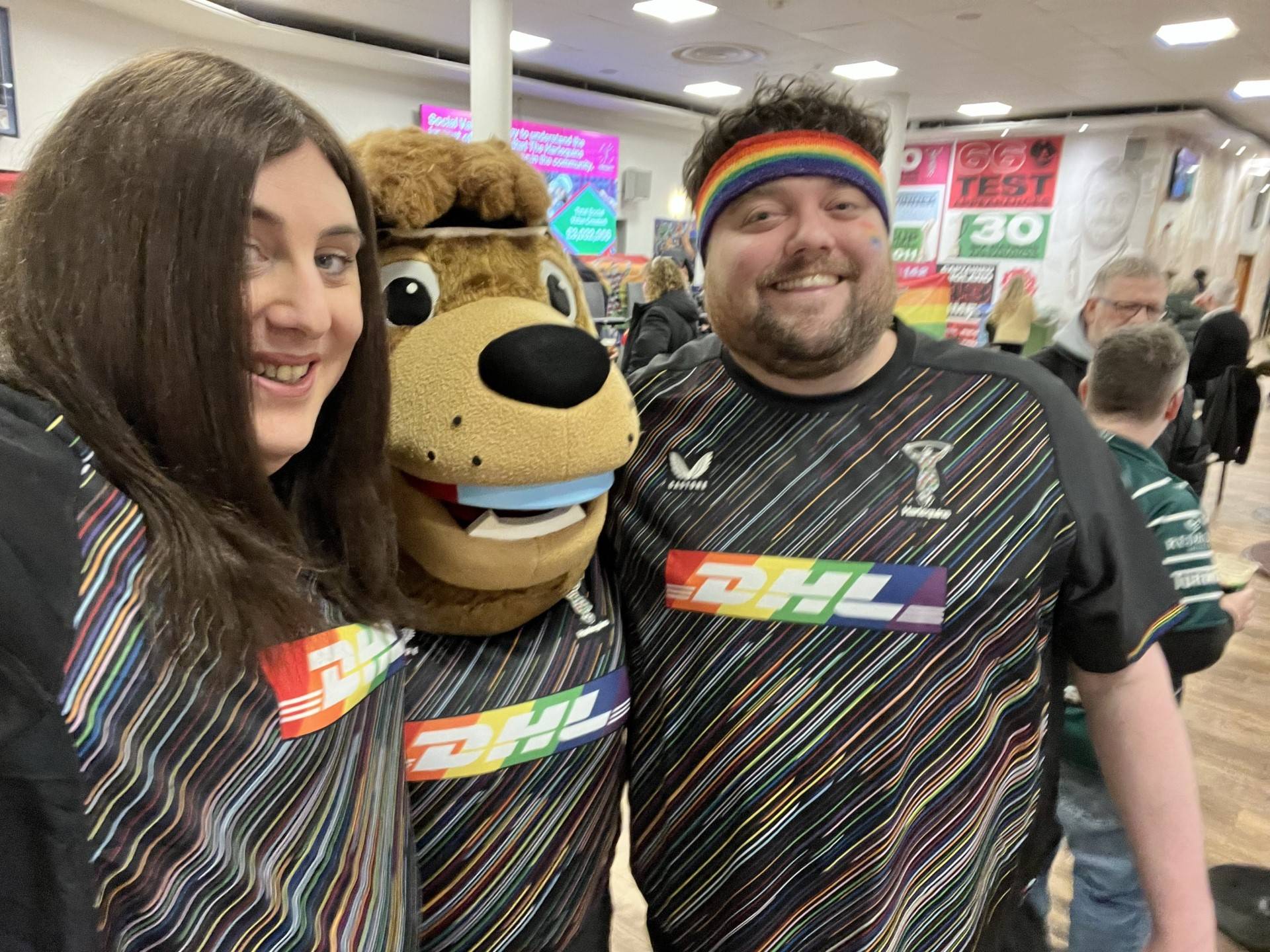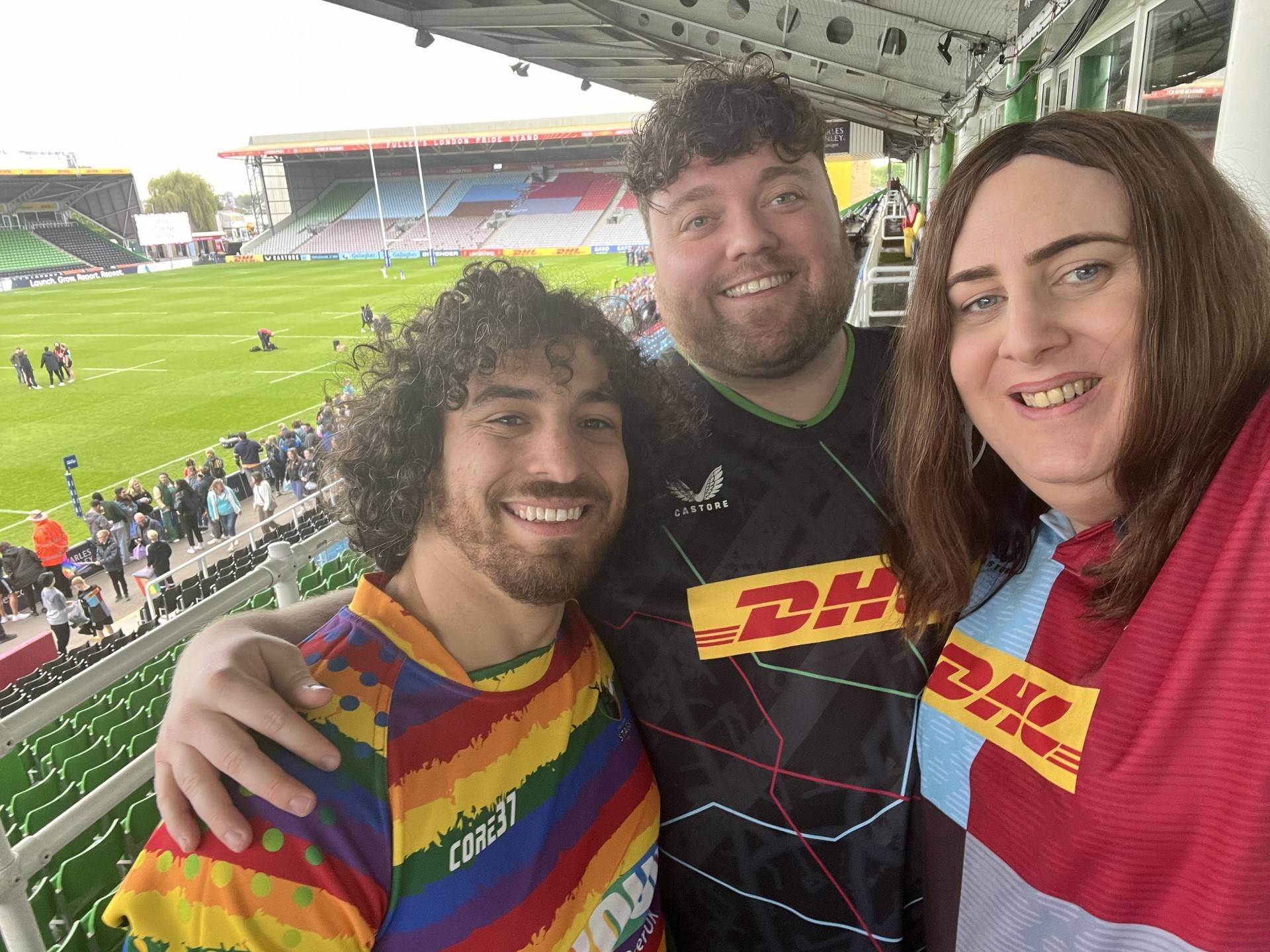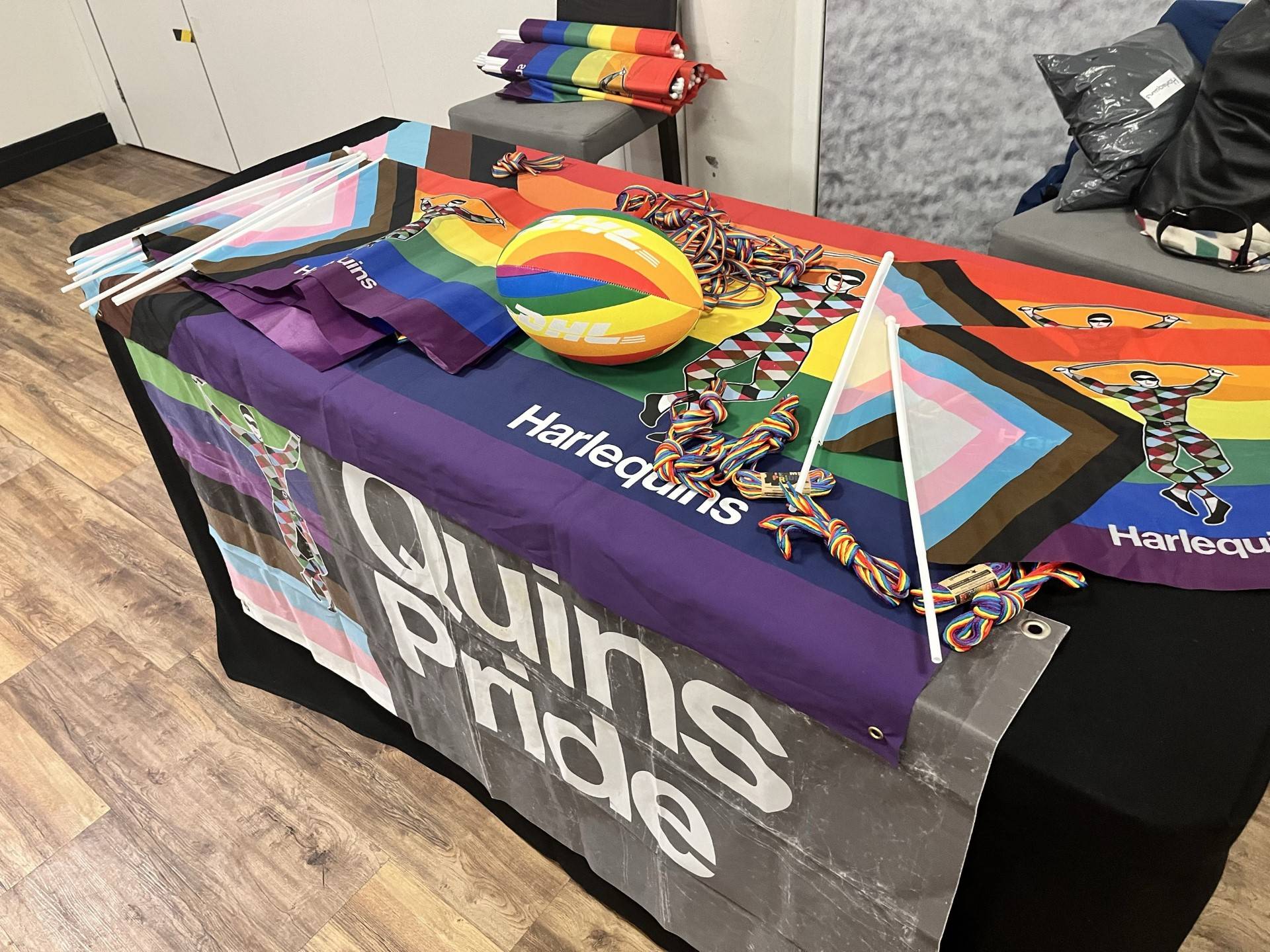
Creating safe spaces: navigating sports as a visibly queer person
Interviews
“What we're doing is we're building that empathy for what can be a really nerve-wrecking experience - enjoying live sports. That's what it's about.”
Emily Hamilton, VP Strategic Change at RS Group, spoke to myGwork about overcoming the history of homophobia in sports, and navigating sport activities as a visibly queer person. Talking about her journey with Harlequins, a Premiership Rugby Club in the UK, she discusses why building empathy is key to creating a safe space.

I came from a rugby family – my dad played rugby for Wasps. And rugby was always my sport because part of its uniqueness in that people of all body shapes and sizes can play together on the same team. Rugby enabled me to have a sport that I could play where it was fair because you can have tiny kids, you could have big kids, and everyone had their own position and their own part to play. I got a lot from rugby – and in fact, I played from the age of 6 to a pretty good level.
Rugby has always had this sort of ethos of being a very gentlemanly sport, even though it's quite rough. And yet, you know, there's always been a sort of underlying homophobia within rugby, which didn't really get challenged until the mid-1990s when the first gay rugby club was founded in the UK, which is called the King's Cross Steelers.
And it happened at that time, I was at the end of my playing career, I happened to share a ground with the Steelers. I was still closeted at the time, and they were the first ones to break cover and say, “This is a gay rugby club and we're here to, you know, have a place for us to play”. And I remember the homophobia. I remember the jokes. I remember showering and people saying, “oh don't go in the shower while they're in there, don't drop the soap”, all that sort of nonsense.
So, Harlequins is a Premiership Rugby club in the United Kingdom founded just over 150 years ago, so one of the oldest teams in the in the league. And I've been going to Quins on and off since 1983, and I became a season ticket holder about 20 years ago. And 4 1/2 years ago, when I came out, there were lots and lots of questions about how this works. How am I going to go to work? How am I going to navigate family? To me, one of the questions was: How do I do rugby?
I had to face up to the fact that my season ticket was changing because my name had changed. There was no online form, so I had to phone the club and say, “look, there's a change in circumstances. My name's changing. I'm going through gender re-assignment. Can you change my name from ‘him’ to Emily?” And the club was really lovely. And they made no song and dance about it. Just, “oh yeah, of course. Thats absolutely no problem. We'll get that card reissued for you, and welcome back and everything else.”
And that gave me a bit of an inkling that Quins were going to be OK. The club hosted its first Pride fixture which was led by a then employee who was gay himself and wanted to have one fixture where we recognise the LGBT community and the strides that have been made. They invited The Kings Cross Steelers, the first gay club who are not far from Harlequins geographically, and brought them in to have the match. Not long after that, I went through my social transition, and I came up with an idea that I thought we should have an LGBTQ supporter’s association in the UK – and by coincidence, the thinking of my friend at the club was exactly the same. Every Premiership soccer club, every championship soccer club, pretty much has an LGBTQ sports association. Within rugby, there were none. There was nothing at all. I felt we needed to be able to hold a mirror up to the club and challenge the club as a critical friend. I wanted it to be free to join for LGBTQ+ people and allies. I didn't want there to be any barriers to people stepping up and being part of the community. Our primary mission was around community and safety at the club. This was all about saying, “This is a safe place to be, to hug your partner, kiss your partner”. But also, you know, very personally to me, where people can be very visibly queer.

So that was very much our mission and our goal, and we started to look at some of the things which are a problem. “What's the first trip to the Stoop, our home ground like?” For a visibly queer person, in my case, it was one of the most terrifying walks of my life. You know, parking my car at the stoop is maybe half a mile. And I was shaking, heart palpitations, sweating, because I didn't know how I would be received. Walking in as a season ticket holder, I'm sitting in the same seat I've sat in for the last 20 years, with all the same people sitting around me. All of a sudden, the guy who used to sit there isn't sitting there anymore. But I am, you know, and "hey, surprise, it's me - the same person".
So, it was very much a thought about, “how do we make it a better experience for people coming in for their first time?” So, right away we offered a service where if somebody is really worried about walking to the ground, we'll go and pick them up from their car. We're going to meet them and walk in with them so they feel that they can just get there. And we add a sort of social elements of just being there and educating people. And every single match we've been at, we've had a conversation with somebody who hadn't previously interacted with the LGBT community in this way. Whether that be about topical issues or just, you know, “tell us a bit more about yourselves and why are you there”? And we're there because sport has not traditionally been accepting of LGBT people. So we want to show who we are.
That's how we set ourselves. We set up a committee, and what we've done is work with the club every year on our annual pride match. Giving some authenticity and helping the club not to make mistakes. because you often just don’t know what you don’t know, and having authentic community voices really helps. We've been involved in conferences, working with partners, including commercial partners and sponsors of the club, and with club's DEI networks. And for Quins, our main sponsor is DHL and they suggested changing their DHL logo to their Pride logo for our Pride shirt. They have DHL Pride branding now in the stand permanently. It's really demonstrating that commitment to inclusion which really, really makes a difference.
And while we did find ourselves involved in some campaigning, that’s the unwanted bit, the necessary but unwelcome part of being involved in QuinsPride. I never wanted it to be a campaigning organization. We are very much about community, safety, education, and just showing people who we are. Because our identities are important to us and what that means to us.

So, you know, where are we now? As an organization, we're a number of years in and our membership is growing. We are still reaching people on an individual basis. Every match, we're having a different conversation with every person who comes up. And we're able to have that conversation about breaking down barriers. We've now got a QR code on the back of the seats and if people are being homophobic, racist, misogynistic, ableist or any sort of bigotry it can be reported to the stewards anonymously and the steward will come and remove that person from the ground. We worked with the club on the code of conduct about what is and is not acceptable.
What we're doing is is building that empathy for what can be a really nerve-wrecking experience - enjoying live sports. That's what it's about. We just want people to be safe, enjoy sport, support Harlequins, see us do well, and create an environment where not only fans can be safe to come out, but players too. We see so many players coming out after they retire. We don't want them to feel like they have to wait. We want to challenge some of those things.
Honestly, the biggest thing for us when we're at a game is that we want Harlequins to win. And one of the big things about rugby recently is, is that sadly, some clubs have gone bust. And if you are going to survive, you've got to attract a new audience, you've got to attract younger people. Because clubs are businesses as well as sports clubs. And customers aren't going to put up with bigotry and discrimination. And the ones that do think that abuse and bigotry is ‘part of the game’, they won’t keep you going. They're not going to be in the next generation.

